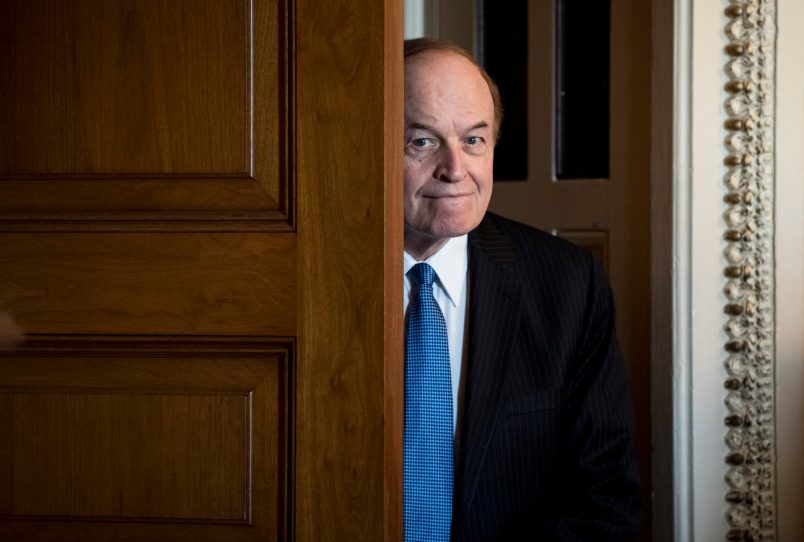Sen. Richard Shelby (R-AL) announced Monday that he will retire at the end of his term, leaving his seat open for the 2022 midterms.
“Today I announce that I will not seek a seventh term in the United States Senate in 2022,” he wrote in a statement. “For everything, there is a season.”
Shelby is the latest in a line of Republican senators bowing out rather than running for reelection. Most recently, Sen. Rob Portman (R-OH) surprised many by announcing his retirement at age 65, a spring chicken in Senate terms.
Before Portman, Sens. Pat Toomey (R-PA) and Richard Burr (R-NC), also young to retire, announced that they too will not run again in 2022. Those two retirements may prove a ripe opportunity for Democrats to pick up seats, without the GOP incumbency advantage.
And the Republican Senate exodus may continue. Sens. John Thune (R-SD), Chuck Grassley (R-IA) and Ron Johnson (R-WI) are all being watched as potential retirements to come.
Shelby, age 86, did not explain his reason for leaving in a statement that celebrated his time in the Senate. He is currently ranking member on the powerful Senate Appropriations Committee. The Associated Press reported last week that he was privately considering retiring.
Portman, for his part, was fairly candid in his retirement statement, describing the difficulty in getting anything done amid an “increasingly polarized country.”
Shelby’s seat likely will not be seen as fertile ground for a Democratic flip — though recent history proves that such a feat is not impossible — but it does contribute to a friendlier landscape for Democrats in the next electoral cycle. No party has held unified control for more than four years since 1968, and the last four times a President went into a midterm election with all three branches, voters flipped at least one of them. Given that bleak historical precedent for Democrats, the more Republican incumbents bow out, the better.
Shelby was first elected to the Senate as a Democrat back in 1986. He repeatedly clashed with then-President Bill Clinton, and switched to the Republican party in 1994, the morning after the GOP took the House.
Recently, Shelby played a critical role in his state’s special Senate election in 2017. Then, Roy Moore, weighed down by sexual assault and harrassment allegations from women who were underage at the time, was going up against Doug Jones.
“I’d rather see the Republican win, but I’d rather see a Republican write-in,” he said on CNN two days before the election. “I couldn’t vote for Roy Moore. I didn’t vote for Roy Moore.”
Jones won the seat and served until 2020, when he was ousted by former Auburn football coach Tommy Tuberville, a very pro-Trump Republican.







Forget it, Jake. It’s Alabama…
Rob Portman, age 65, characterized as a spring chicken in Senate terms. Well, that says a lot about the state of affairs of this so-called deliberative body.
Let’s hope Stacy can work her magic next door.
Seen here making sure Donald Trump is not around.